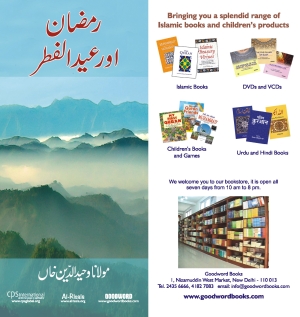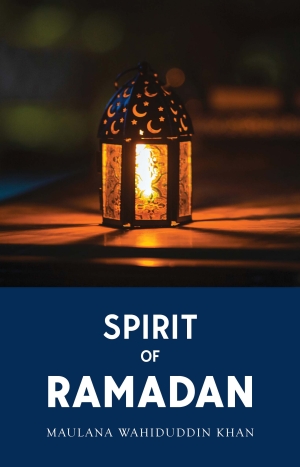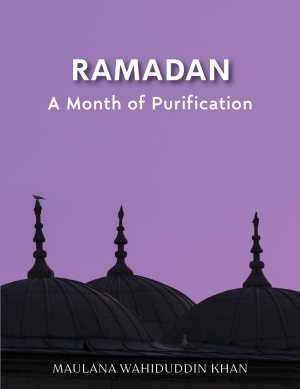Eid al-Fitr concludes Sawm, the ritual fasting period of Ramazan, the fourth great pillar of Islam. Eid al-Fitr, which marks the end of Ramazan, is a day of thanksgiving and jubilation, as it signifies the successful completion of the sacred month of Ramazan, the time of earnest labour spent in fasting, prayers and study of the Quran. It is the loftiest achievement of moral exercises, celebrated with an extraordinary zeal on Eid al-Fitr.
With this spirit of thanksgiving, Eid al-Fitr is observed worldwide by offering prayers to God and rejoicing in accomplishing an act of dedication and submission to the Almighty. The Muslims obey the Lord in the congregation— displaying the real spirit of brotherhood, equality and fraternity through congregational prayers and feasts.
Featured Articles
Featured Videos
FAQs
Eid al-Fitr is celebrated by sharing happiness with the rest of mankind. It should also not be forgotten that real happiness lies in sharing with others the bounties that God has given us. We should not forget those who are afflicted with poverty, ignorance, disease, and other misfortunes. That is why charity has been held obligatory before the Eid prayers. The needs of fellow human beings should never be ignored. For, the real essence of Eid lies in spreading happiness and love all around us, which can be fulfilled only when we help the poor and the needy. It is incumbent on us to give alms (sadaqah fitr) on this festival. Alms should be given well before Eid day so that the poor may take part in the celebrations as well.
In this sense Zakat al-Fitr is specifically related to the month of fasting and is given before the special Eid prayer.
According to a Hadith reported by Ibn 'Abbas: The Prophet made Zakat al-Fitr obligatory for the fasting person to keep him from idle talk and indecent conversation and to provide food for the needy. Discharging the duty before the prayer is an accepted Zakat while discharging it after the prayer is just sadaqah (voluntary charity). (Sunan Abu Dawud, Hadith No. 1609)
Zakat al-Fitr perfects the fast of Ramadan and purifies the fast of any indecent act or speech. It is obligatory on all Muslims: young, old, male and female. Every Muslim who possesses over and above what is needed as basic food for the duration of one day and night must pay Zakat al-Fitr for himself and his dependents and distribute it amongst the poor and needy. The earlier it is given the easier it is for them to make arrangements, so that they may also take part in the celebrations of Eid without any difficulties.
Source: Spirit of Ramadan
Eid al-Fitr, the day of the festival, also gives us a faint taste and semblance of the life Hereafter. It reminds us of the joys and pleasures of the Hereafter promised to a believer who has successfully passed this worldly test.
A true believer, having undergone the period of fasting in a most sincere manner, gets the feeling of the Hereafter as soon as the month of Ramadan is over and the celebrations for Eid are underway. He feels as if he is being entertained as a guest by God Himself.
From the depths of his being, his heart cries out: ‘O God, as You have helped me carry out the injunctions of fasting and at the culmination of the month, have bestowed on me the joys of Eid, accept this life of mine as one spent in fasting and bestow on me the delights of Paradise. Include me amongst the list of persons who have been bestowed the life of Paradise by opening Thy gates of mercy!’
The message of Eid fosters the rekindling of our faith and the opening of new vistas and an entirely fresh and innovative approach to the struggles of life which would culminate by the grace of God with the rewards of everlasting Paradise.
Source: Spirit of Ramadan
Eid-ul-Fitr may be a Muslim festival, but Muslims, like other communities, live in a society, in a neighbourhood. This makes Eid-ul-Fitr automatically a social festival. Therefore, Muslims meet not only with their religious brothers, but also with neighbours of other denominations and with their colleagues at work or in business. It is this social aspect of Eid-ul-Fitr that has led to the practice of Eid Milan.
Muslims observe Eid Milan (get together on Eid day) by inviting their neighbours and others to spend some time with them. In this sense Eid-ul-Fitr promotes social harmony.
Like other festivals, Eid-ul-Fitr cannot be observed in isolation. It is but natural that the festival begins as a Muslim tradition but, in practice, it turns into a social festival. During their preparation of Eid, they are bound to meet their fellow brethren. Then when they leave their homes to go to mosques, they again meet other members of society. Thus, every activity of Eid-ul-Fitr automatically turns into a social activity. In this sense the observation turns into a human festival rather than a Muslim festival, sometimes directly and sometimes indirectly.
Eid-ul-Fitr has a form, but at the same time there is a spirit inherent in all the festivity. In terms of form it may seem to be a limited festival, but in terms of spirit it is a universal festival. If Eid-ul-Fitr is observed in its true spirit, it will energize the whole community, bringing people together in harmony and gratitude. Eid-ul-Fitr therefore truly means Eid-ul-Insaan or a festival of humankind.
Source: Spirit of Islam May 2018
Fasting in the month of Ramazan is not simply giving up food. In fact, it symbolizes abstention from all kinds of practices that are unlawful in Islam. The Arabic word for fasting is ‘sawm’ which means abstinence. Abstaining from food and water in the daytime during Ramazan reminds Muslims that they have to lead their lives with a sense of responsibility. They have to remind themselves that, in the present world, they have to adopt a life of abstinence, taking something and leaving something. This is the true spirit of Ramazan.
Then comes the festival of Eid-ul-Fitr, a symbolic reminder of the fact that one who leads a responsible life in this world will be rewarded with a life of happiness in eternal Paradise. Eid-ul-Fitr also has a social connotation. On this day Muslims go out of their homes, offer a congregational prayer, meet their neighbours, exchange good wishes with other people and enjoy special food. All these activities are reminders of life in Paradise.
Eid-ul-Fitr may be a Muslim festival, but Muslims, like other communities, live in a society, in a neighbourhood. This makes Eid-ul-Fitr automatically a social festival. Therefore, Muslims meet not only with their religious brothers, but also with neighbours of other denominations and with their colleagues at work or in business. It is this social aspect of Eid-ul-Fitr that has led to the practice of Eid Milan. Muslims observe Eid Milan (get together on Eid day) by inviting their neighbours and others to spend some time with them. In this sense Eid-ul-Fitr promotes social harmony.
Like other festivals, Eid-ul-Fitr cannot be observed in isolation. It is natural that the festival begins as a Muslim tradition but, in practice, it turns into a social festival. During their preparation for Eid, they are bound to meet their fellow brethren. Then when they leave their homes to go to mosques, they again meet other members of society. Thus, every activity of Eid-ul-Fitr automatically turns into a social activity. In this sense, the observation turns into a human festival rather than a Muslim festival, sometimes directly and sometimes indirectly.
Eid-ul-Fitr has a form, but at the same time, there is a spirit inherent in all the festivity. In terms of form, it may seem to be a limited festival, but in terms of spirit, it is a universal festival. If Eid-ul-Fitr is observed in its true spirit, it will energise the whole community, bringing people together in harmony and gratitude. Eid-ul-Fitr therefore truly means Eid-ul-Insaan or a festival of humankind.
Source: Spirit of Islam June 2017











